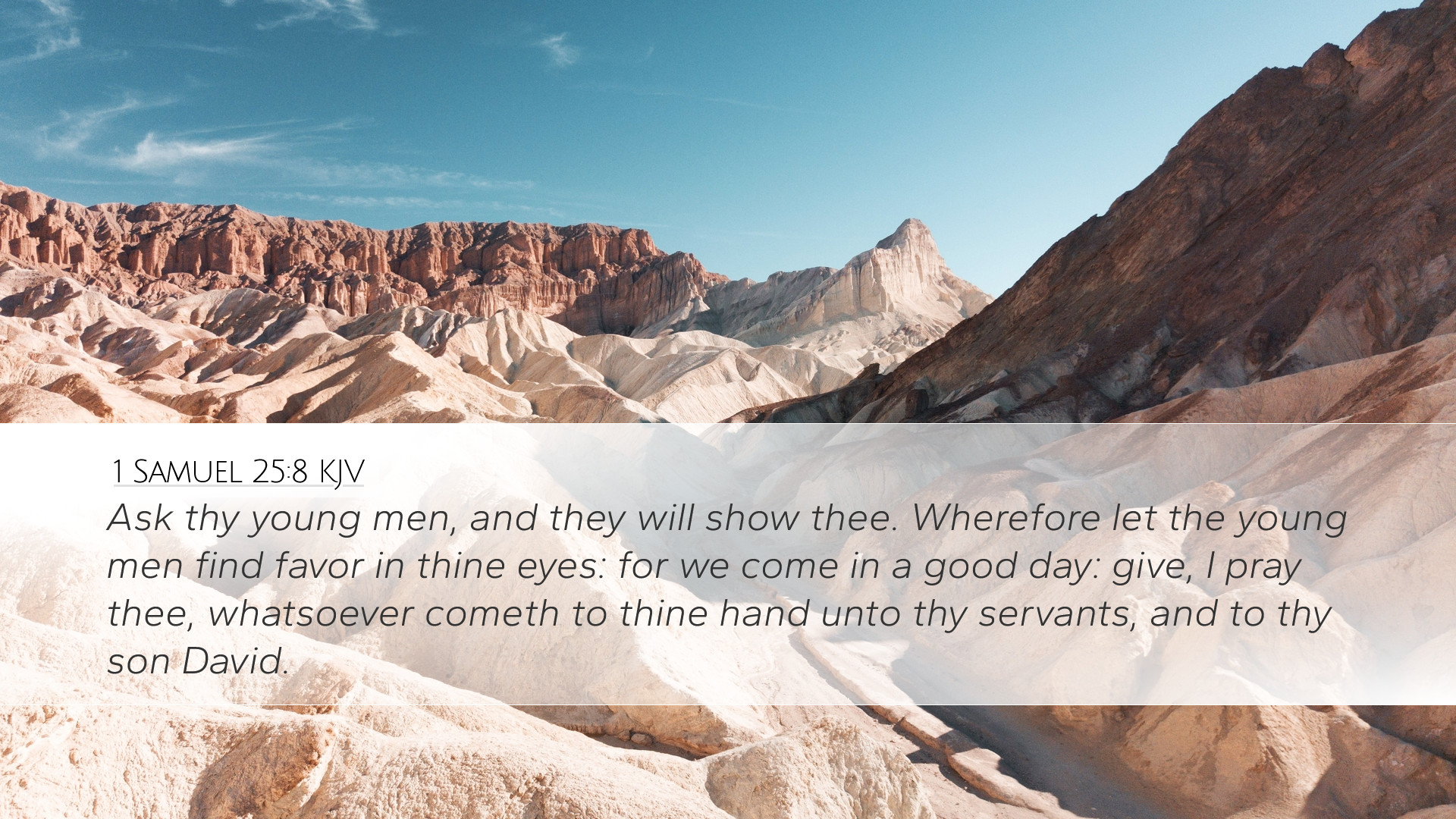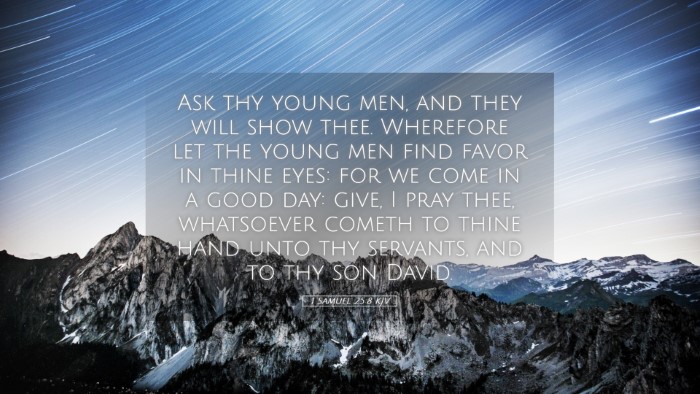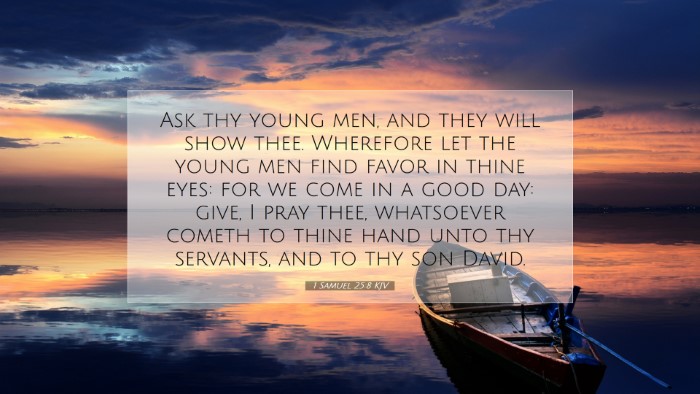Commentary on 1 Samuel 25:8
Verse Context: 1 Samuel 25:8 states, "Ask your young men, and they will show you. Therefore let my young men find favor in your eyes, for we come on a feast day. Please give whatever comes to your hand to your servants and to your son David."
Exegesis and Theological Insights
This verse is situated within a larger narrative concerning David's interactions with Nabal and Abigail. The context reveals David's precarious position as a fugitive, relying on the goodwill of others for sustenance. The request made here is significant, showcasing both David's humility and strategic approach as he seeks to secure resources during his time of need.
Matthew Henry's Commentary
Matthew Henry emphasizes the propriety of David's request. He notes that David’s men had protected Nabal's shepherds and flocks in the wilderness, making it justifiable for David to expect a share in Nabal’s abundance during a festive occasion. This highlights the principle of reciprocity found within ancient Near Eastern culture, where loyalty and kindness were expected to be returned in kind.
Henry also points out that David’s appeal to Nabal is made in a humble and respectful manner, seeking favor rather than demanding recompense. This indicates David's character and his understanding of proper decorum in seeking assistance from those who are not bound by any legal ties to him.
Albert Barnes' Commentary
Barnes focuses on the social dynamics at play in this narrative. He suggests that David’s request was articulated with a cultural sensitivity that acknowledges the celebratory nature of the feast day. Nabal, as a wealthy man, would have been in a position to respond generously. The act of asking for provisions on such an occasion is significant, as it reflects an expected social norm within the context of ancient Israel.
Moreover, Barnes highlights that David refers to the young men as intermediaries, which would have lent credibility to his request. This indicates an understanding of social hierarchies and proper channels for communication, illustrating David's wisdom in navigating complex interpersonal relations during times of distress.
Adam Clarke's Commentary
Adam Clarke provides an extensive exploration of the cultural implications surrounding hospitality in the biblical text. He notes that during feasts, it was customary for those who had been blessed with abundance to share their bounty with others. Clarke emphasizes the reciprocal expectations of hospitality as an integral aspect of societal cohesion in the ancient world.
Clarke also delves into the significance of David's identity as 'son of Jesse', which he uses as a means to connect with Nabal. This identification not only serves as a reminder of David's humble beginnings but also establishes his legitimacy and presents him as aligned with the interests of Israel, thus potentially evoking a sense of duty within Nabal.
Thematic Considerations
- Leadership and Humility: David’s request illustrates his leadership style—one that is characterized by humility and respect. His approach is not confrontational, but rather diplomatic, demonstrating the importance of relational wisdom in leadership.
- Social Reciprocity: The expectation of hospitality during communal feast days reflects broader theological themes regarding community, generosity, and the interdependence of individuals within society.
- Faith in Divine Providence: David’s request can also be seen as an act of faith, trusting that God would provide for him through Nabal’s resources, illustrating a reliance on divine providence even amidst human opposition.
Application for Pastors and Theologians
This verse invites pastors and theologians to reflect on the nature of requests made within their congregational contexts. It serves as a reminder that humility in leadership, coupled with an understanding of social dynamics, is essential in guiding interactions both within and outside the church community. The theme of generosity, especially in light of societal celebrations, encourages church leaders to foster a culture of sharing and support among members.
Furthermore, this narrative can inspire discussions on the concept of divine providence—how often do we, like David, step courageously into the unknown with faith that God will provide? How can church leaders be more attuned to the needs of their community, especially in times of feasting and celebration?
Conclusion
1 Samuel 25:8 encapsulates vital themes concerning relationships, resource-sharing, and the dynamics of social expectations in Ancient Israel. Through the insights garnered from the commentaries of Matthew Henry, Albert Barnes, and Adam Clarke, one can glean a comprehensive understanding of the complexities at play and their application in contemporary ministry. This story not only reflects David's leadership but also God's provision through the actions of others, encouraging a deeper resonance with the themes of grace and community within the body of Christ.


